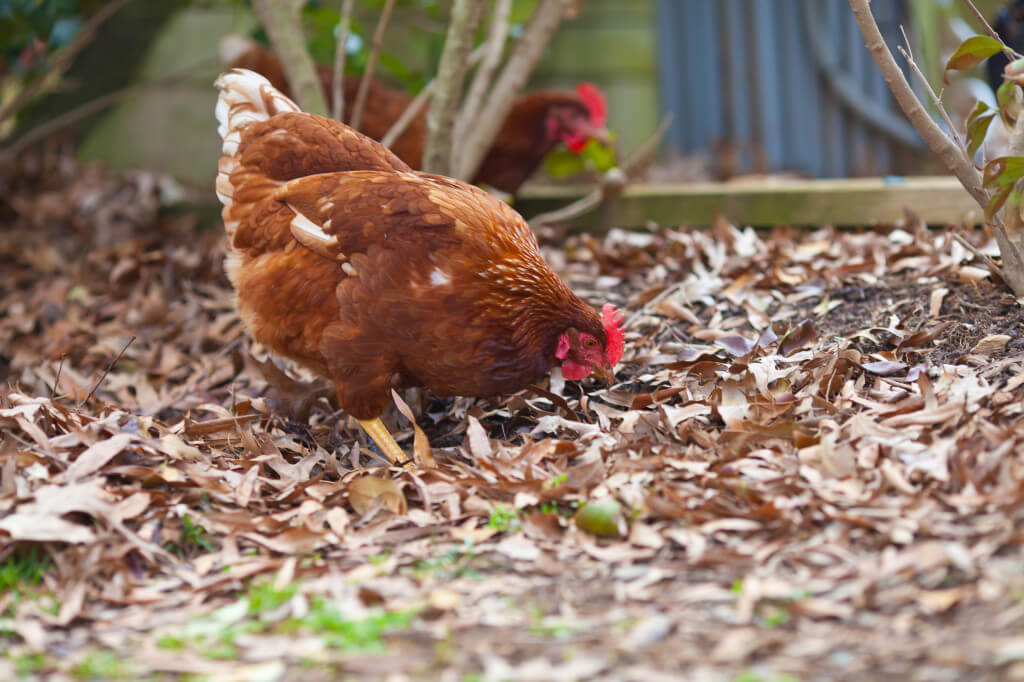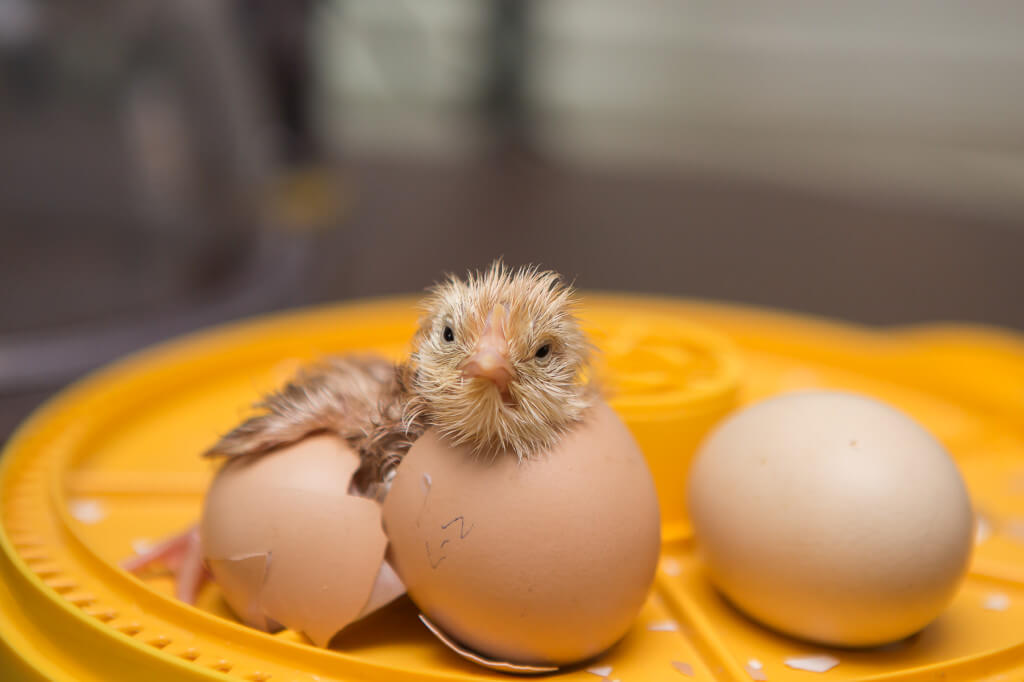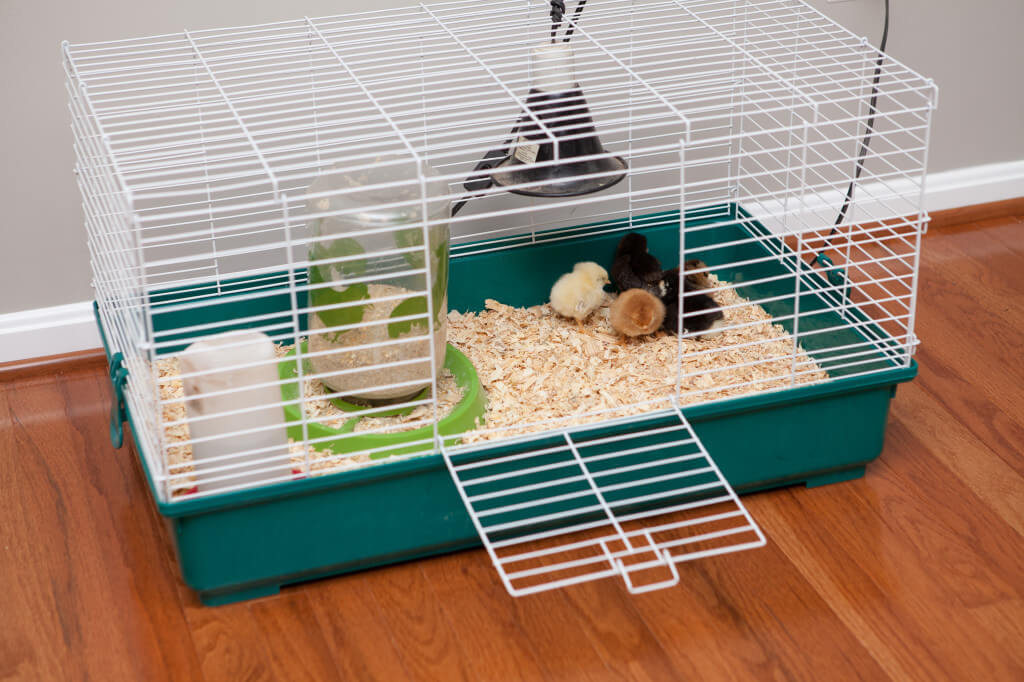- August 05, 2014
- By Karen Shih ’09
“We wanted to educate people and help create new, modern farmers,” says co-founder Diana Samata ’09, who started the company with boyfriend Tyler Phillips (above).
Families can rent hens or chicks for four weeks for $180, giving them a chance to bond with the birds, eat fresh eggs and decide whether to bring a feathered friend permanently into (or, more accurately, outside of) their homes.
Featured in The Washington Post, “CBS Sunday Morning” and lots of local media, RentACoop has grown to include customers in New York and Connecticut since its creation two and a half years ago. It started, unfortunately, because of some headless chickens.
Samata and Phillips had been helping out with his parents’ mobile petting zoo, Squeals on Wheels, when one night, a raccoon reached a paw into the commercially manufactured coop and ripped the heads off of several unlucky tenants.
Phillips’ mom, who considered the chickens like family pets, was devastated. She asked her son to make a safer coop that could keep out raccoons, foxes and coyotes. After doing that, he and Samata started selling and renting more coops on Craigslist. Then they realized they could offer the whole package.
Today, their hen rentals include two chickens, a predator-proof coop, organic feed and pine shavings for bedding, as well as a chicken care pamphlet.

They’ve improved the coop design many times, and it now fits easily into a minivan if the back seats are removed. The 6.5-feet-long coop, usually made from recycled wood, includes an area to graze on grass and bugs, an enclosed upper section to lay eggs in and a “basement” for resting in the shade. They recommend letting the chickens out for supervised grazing each day, but if it’s not possible—like for one couple in a D.C. rowhouse—the chickens are fine staying in the coop.
These fluffy little creatures are curious enough to follow you around to get some fruity treats and friendly enough to be picked up and tucked under your arm—just like a pet dog or cat. That’s why about 90 percent of RentACoop customers have children, Samata says.
Terry Kettler, who rented chickens last fall, says they’re “hysterical. They have so much personality.” Her family, especially her three young daughters, ended up loving the hens so much—the girls like to swing with them in their laps—they purchased four.
Samata and Phillips also started a chick-hatching program last fall. Customers get two chicks, seven eggs in an incubator that automatically turns them, a specialized light to see inside the eggs, as well as feed, bedding and a cage. Since the eggs won’t hatch for three weeks, families can take care of the two chicks and watch them grow as they wait for the rest to hatch.

They’re working with local schools and daycare programs to introduce chicks in the classrooms (Kettler is sponsoring programs in eight classes, including her daughters’, at Potomac Elementary School this fall) instilling an early appreciation for the furry and fluffy in children.
“I’ve always connected with animals,” says the Romanian-born Samata. She spent summers visiting family there, often playing with ducks and chickens.
Animals—and her boyfriend—helped her get through a yearlong treatment for Hepatitis C, a chronic liver disease, after she graduated from Maryland. It left her drained and disconnected from many of her friends. She worked sporadically when she had the energy, teaching ballet to little kids and working part-time at her dad’s company.
Phillips, who had been her friend for several years, was “very supportive during a very hard time in my life,” she says. They started dating, which led to Samata doing administrative work for the petting zoo. Being back around the animals “helped me step by step to get back into the world,” she says.
Though RentACoop was profitable last year, it’s not making enough to support the couple yet. Samata still teaches part-time, and they’re looking to move their operations out of Phillips’ parents’ back yard in Potomac so they can hire more workers and expand the company. He currently builds every coop by hand, and there’s only one employee to help with all the cleaning and feeding.
Samata is planning to return to school to get her M.B.A. and envisions taking RentACoop nationwide.
“We’re part of the movement to be more green, more organic,” she says. “We want to be everywhere.”

